We know we have to take care of our bodies to prevent exhaustion, sickness, and injury. But we often neglect an equally important resource: our mental energy.
It’s easy to put our energy on the back burner when the world we live in prioritizes productivity and constant action. However, learning to protect it can fuel greater success both at work and in your daily life.
This article discusses how to preserve your mental energy and create an energy-positive workspace for yourself and your fellow team members.
What does it mean to protect your energy?
Your mental energy is like a battery. Throughout the day, activities, people, and situations can either charge you up or drain your power.
Protecting your energy means being mindful of what boosts or depletes it. When you prioritize the things that recharge your battery and minimize — or avoid entirely — the things that drain it, you can show up as your best self in both your personal and professional lives.
Physical energy vs. mental energy
There's more to feeling energized than just avoiding physical exhaustion. Let's break down the main differences between physical and mental energy.
Physical energy
Your capacity for physical activity is influenced by factors like sleep, nutrition, and exercise. When your physical energy is low, your body is tired.
Mental energy
Mental energy is your capacity for focus, decision-making, emotional regulation, and resilience. When your mental energy is low, your brain is tired.
Despite these differences, physical and mental energy are interlinked. Poor physical energy can negatively impact your mental energy and vice versa.
Why is it important to protect your energy?
A car running on fumes doesn’t go too far. The same concept applies to us — protecting our energy allows us to perform at our best.
Here is just some of what protecting our energy can do to improve our work and personal lives:
Prevent burnout
Employee burnout is a growing epidemic. About 65% of employees say they suffered from it in 2023.
And unfortunately, this issue often leads to long-term mental and physical exhaustion.
 |
Burnt-out employees are less engaged, more prone to error, and can create toxic energy in the workplace — energy that’s infectious. This not only affects overall company performance but also employees’ relationships and emotional health.
Protecting your energy keeps you fueled. This means you have more energy to be present and engaged, which leads to better outcomes at work and a more fulfilling personal life.
Strengthen resilience and emotional well-being
According to a recent survey, 76% of professionals experience moderate to high levels of stress, and 35% say that the stress they experience at work is having a negative impact on them.
The constant pressure many employees experience at work makes it harder for them to cope with everyday challenges.
Getting rid of negative energy is key to building the inner strength that can help you better manage your stress and maintain your emotional well-being. It gives you the resources you need to handle challenges without feeling overwhelmed.
With better emotional regulation, you can stay calm and make rational decisions even in difficult situations. You're also more likely to prioritize self-care practices since you recognize when you need to take a break.
Improve decision-making
It’s never a good idea to make important decisions when you're not in the right headspace. Research shows that emotions can influence your decision-making. Specifically, anger and sadness can negatively impact the choices you make.
When you don’t have enough mental energy to cope with difficult situations, making appropriate and timely decisions becomes a struggle. This can then lead to lasting negative effects and regrets.
Protecting your energy improves your clarity of thought. It prevents you from making impulsive reactions and decisions. With better mental capacity, you can make thoughtful choices.
8 tips for protecting your energy at work
You have the power to manage your energy instead of letting it control you. Here are eight ways you can protect it and stay mentally strong throughout the day:
1. Set boundaries for work — and respect them
To protect your energy at work, it's crucial that your boundaries are clear and that you follow them.
Define your work hours, and don’t go over or under them. When you’re off work, turn off work-related notifications and avoid checking your work emails to fully disconnect. This allows you to recharge during your personal time.
It’s equally important to communicate these boundaries to others. Let your colleagues and clients know your work hours and when you're unavailable so that you can manage expectations and reduce unnecessary interruptions.
Consider meetings when you set boundaries, too, since meeting burnout is a real problem. Motion allows you to set a daily limit for meetings on your calendar. Once you reach that limit, others won't be able to schedule additional meetings with you — and you automatically protect your time as a result.
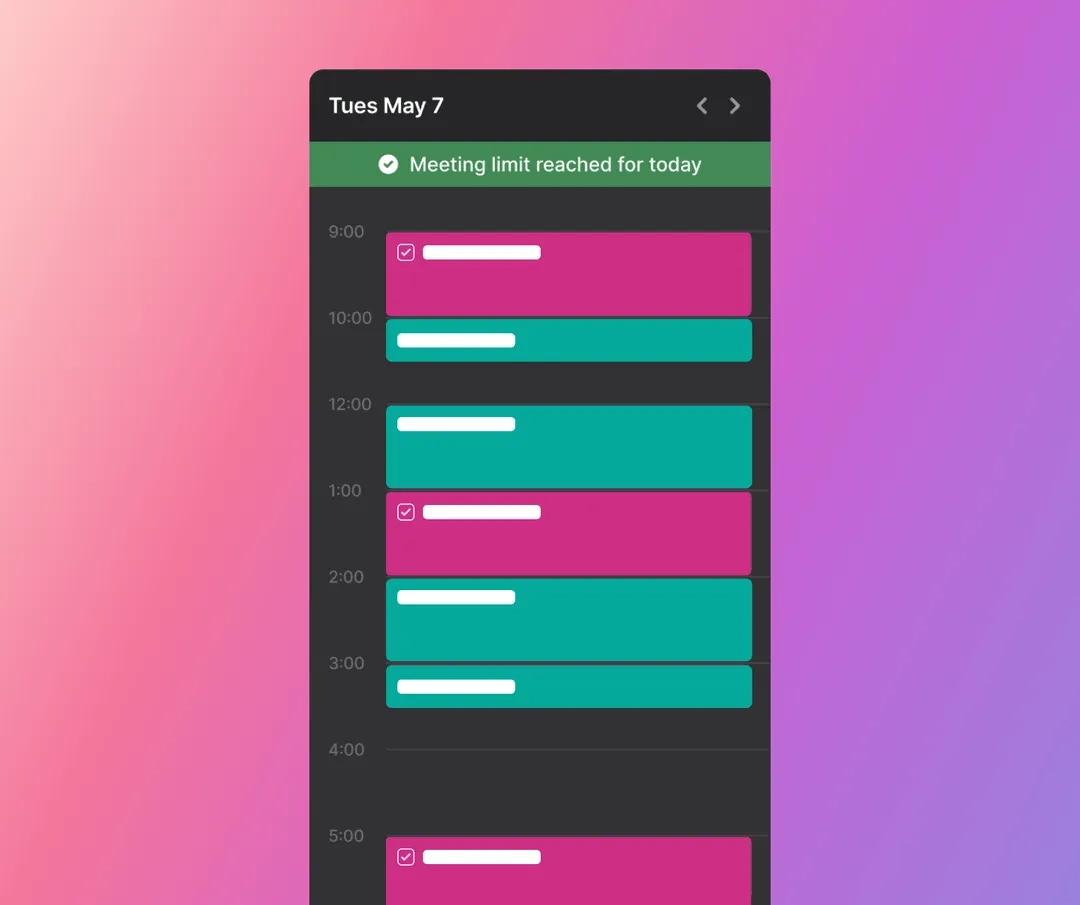 |
2. Get rid of time-wasting habits
Spend a day tracking your activities. Do you find yourself procrastinating, attending pointless meetings, gossiping with coworkers, or scrolling social media excessively? These habits drain your mental energy.
For each time-wasting habit, develop a strategy. For example, if you procrastinate, try the "5-minute rule" — commit to starting a task for just 5 minutes to break down the mental barrier. Or, if you're easily distracted by your inbox, designate specific times to deal with emails instead of constantly checking them.
The goal is to substitute time-wasting activities with better habits. You then free up your valuable energy for your most important tasks.
3. Prioritize and delegate as needed
Your workday doesn’t have to feel like a never-ending to-do list. Whenever possible, prioritize and delegate your daily tasks. It’s important to focus on your most impactful tasks rather than just reacting to what's loudest.
The priority matrix might just be your lifesaver. Categorize your tasks into:
- Urgent and important: Do these tasks immediately.
- Important but not urgent: Schedule these tasks for dedicated focus.
- Urgent but not important: Delegate these tasks, if possible.
- Neither urgent nor important: Remove these tasks entirely.
Motion helps make this process easier. Instead of manually planning and rescheduling, we automatically plan your day based on your tasks and priorities. Get a practical and productive schedule every day to help you maintain your focus and conserve your energy.
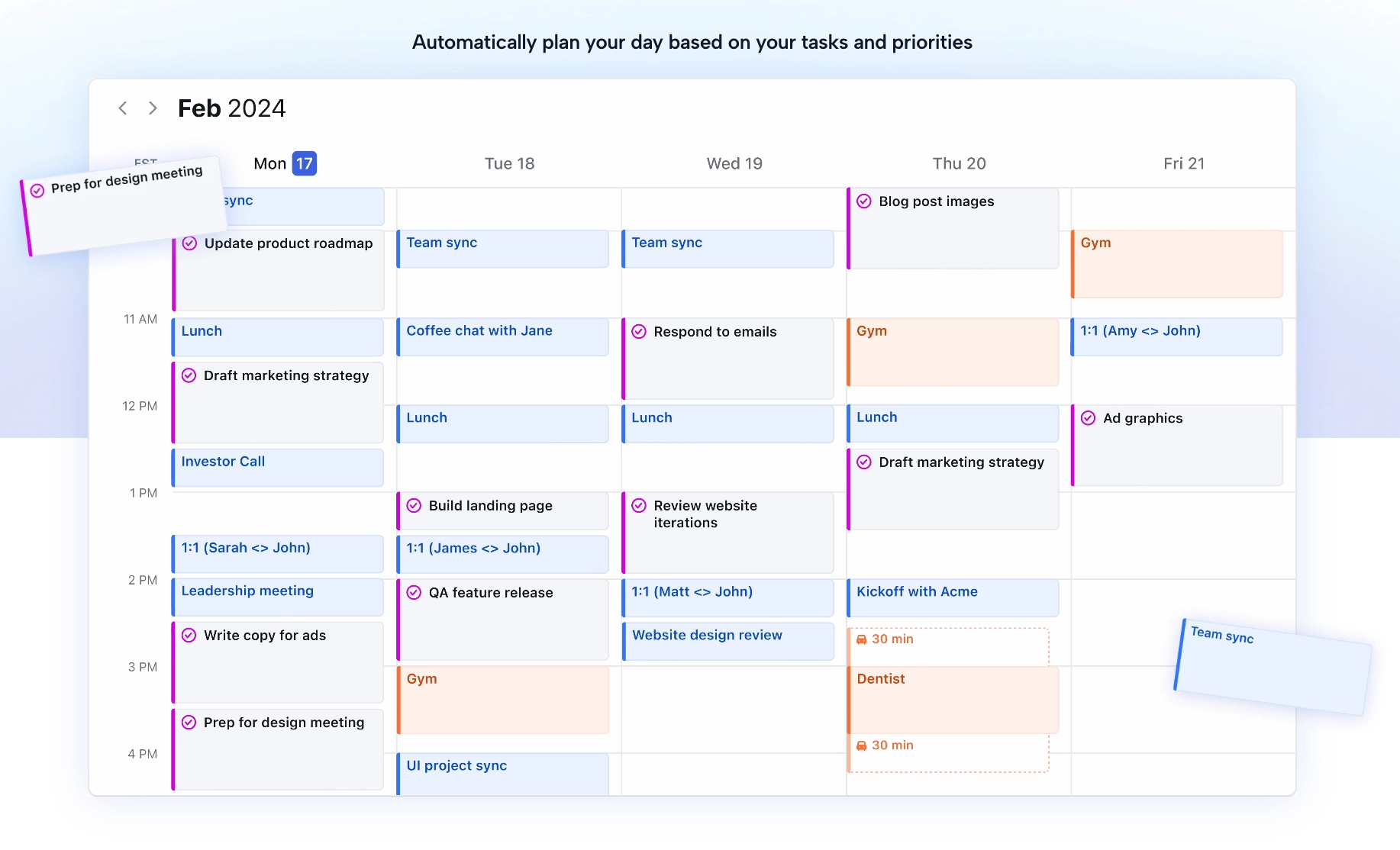 |
4. Recharge with micro-breaks
Our minds aren't designed for non-stop focus. Short, intentional breaks throughout the day are crucial for resetting your attention span, reducing fatigue, and maintaining your mental health. Instead of waiting until you feel completely drained, proactively schedule micro-breaks into your workday.
Try simple practices, like mindful breathing or taking a quick walk outside. Even taking a few deep breaths can calm your mind and reduce stress.
Simple stretches can also release tension and improve circulation, especially if you work long hours sitting down.
The duration of your breaks isn’t as important as the consistency. Incorporating several short breaks into your day effectively prevents burnout and keeps your energy levels stable.
5. Become a master of "no"
Saying "no" can seem difficult, but it's an important skill for protecting your time and energy. Another way to look at it is that by saying “no,” you're simply saying "yes" to what truly matters.
Remember, "no" is a complete sentence. We often fall into the trap of over-explaining because we feel the need to justify our “no’s.” But we don't owe anyone detailed explanations or apologies for prioritizing our well-being and sanity.
If saying “no” is too difficult or uncomfortable, try compromising with the other person.
And when you do say "yes” to something, ask yourself:
- “Do I really have the time for this?”
- “Will committing to this drain my energy?”
- “Do I have the resources to do this well?”
If the answer to any of these is "no," then it's okay to decline politely but firmly.
Motion can help you set realistic deadlines for your existing commitments. This provides a clearer picture of your workload, making it easier to spot potential overload and confidently say "no" to new requests that won't fit into your schedule.
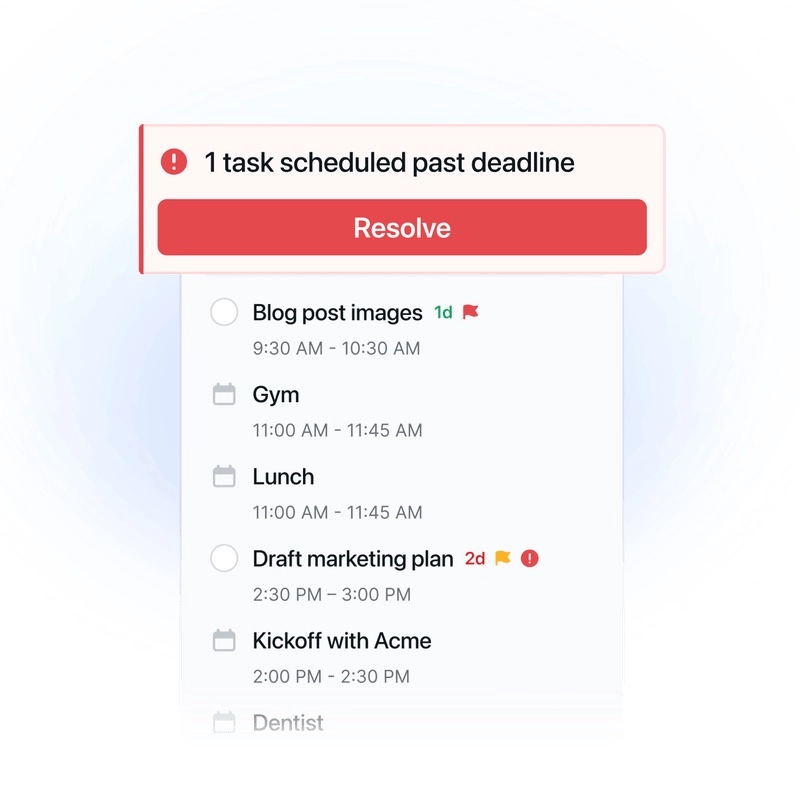 |
6. Fuel your body and mind
The food you eat, the amount of sleep you get, and how often you move your body directly affect your mental energy. So, when you treat your body well, you also give your mind the resources it needs to thrive.
Pay attention to how different foods and eating patterns affect your energy level throughout the day. For instance, many people tend to feel sluggish after lunch. So, if you notice your energy level dipping in the early afternoon, opt for lighter lunches or have smaller, more frequent meals throughout the day instead of one big one.
Listening to your body's cues and fueling it with what it needs will help you maintain focus and mental stamina throughout your workday.
7. Declutter your mind and workspace
A messy desk can make it hard to focus — and so can a cluttered mind. Decluttering your mind and physical workspace helps you stay relaxed, in control, and focused.
A great way to keep your workspace organized is to hold onto only what’s essential. This means tackling problems like overflowing inboxes, disorganized files, and cluttered desks, or having too many open tabs in your browser. Keeping all your documents in a centralized location also prevents you from wasting time searching for specific ones.
Consider using a system like Inbox Zero to help reduce both your mental and digital load.
To really focus, schedule dedicated blocks of time where you allow yourself to work without distraction or external influences. Time block deep focus slots on Motion to minimize the stress that comes with constant task switching.
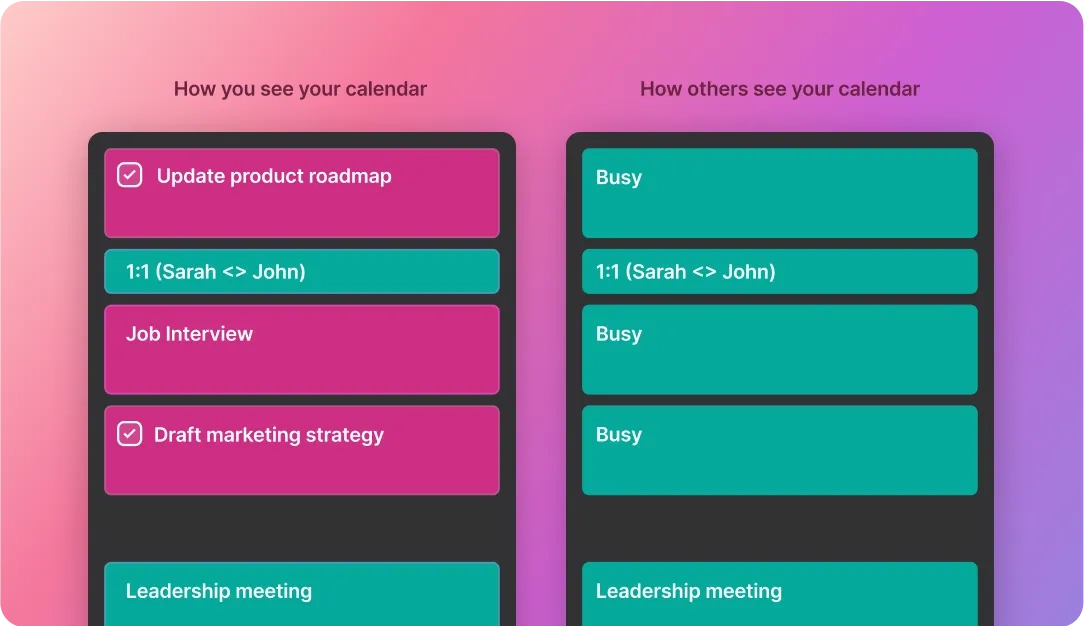 |
8. Practice positive self-talk
The way you talk to yourself can have a profound impact on your energy and confidence level. Negative self-talk is draining. It unconsciously fuels doubt and undermines your efforts.
Here's how to reframe that negative internal dialogue:
- Challenge the critic: When negative thoughts arise, question their truth. Are they based on fact, or are they exaggerated fears?
- Focus on growth: Instead of concentrating on what you’re not good at, direct your focus to areas where you can improve and develop.
- Celebrate wins: Acknowledge your accomplishments, whether big or small. This builds confidence and reminds you of your capabilities.
4 ways managers can create a more energy-positive workforce
You want a team that's motivated and engaged, not just going through the motions. If you’re a manager, you have the power to cultivate a more energy-positive environment.
Here are four ways to achieve this:
1. Promote open communication
Create a safe space where your employees can express their ideas, concerns, and questions without fear of judgment or negative consequences.
Communication should be a two-way street. Don’t just announce information or give orders; actively ask for feedback and input. This builds trust and ensures everyone feels heard.
A good way to keep communication open is through regular check-ins or team meetings. You can even templatize your meetings so that scheduling recurring ones takes just one click.
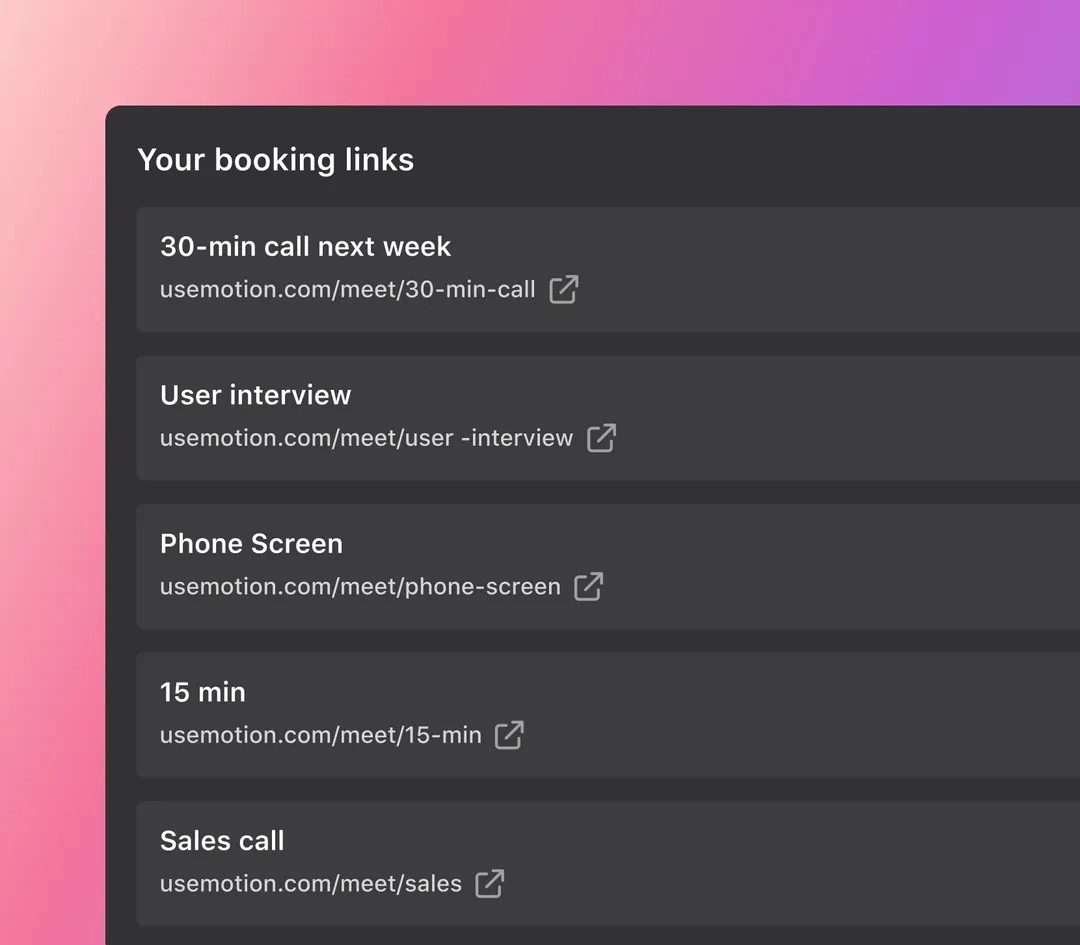 |
2. Champion work-life balance
The best workplaces understand that employees have a life outside of work. Championing work-life balance shows you value your team as people, not just workers.
When possible, consider offering flexible schedules or remote or hybrid work opportunities to allow for greater employee autonomy.
Avoid the “always on” culture, too; respect your employees’ personal time when their work hours are over. Encourage them to truly disconnect and recharge. This leads to happier, more satisfied, and engaged employees who feel supported and energized to do their best work.
3. Encourage autonomy and ownership
Micromanagement signals distrust, breeds resentment, and depletes everyone's energy. Sometimes, the smartest thing you can do as a manager is to let go of the ropes. Empower your team with ownership over their work.
Trust your team to make decisions within their roles and manage their own workflows while still offering support and guidance as needed. Additionally, help your team see the value of their contributions and how they affect the bigger picture. You can do this by regularly highlighting individual successes and their impact on the overall team goals.
Motion can give you a high-level view of your team’s progress, letting you see what everyone is working on without needing to micromanage. Give your team the space they need to do their work while also being ready to offer support whenever needed.
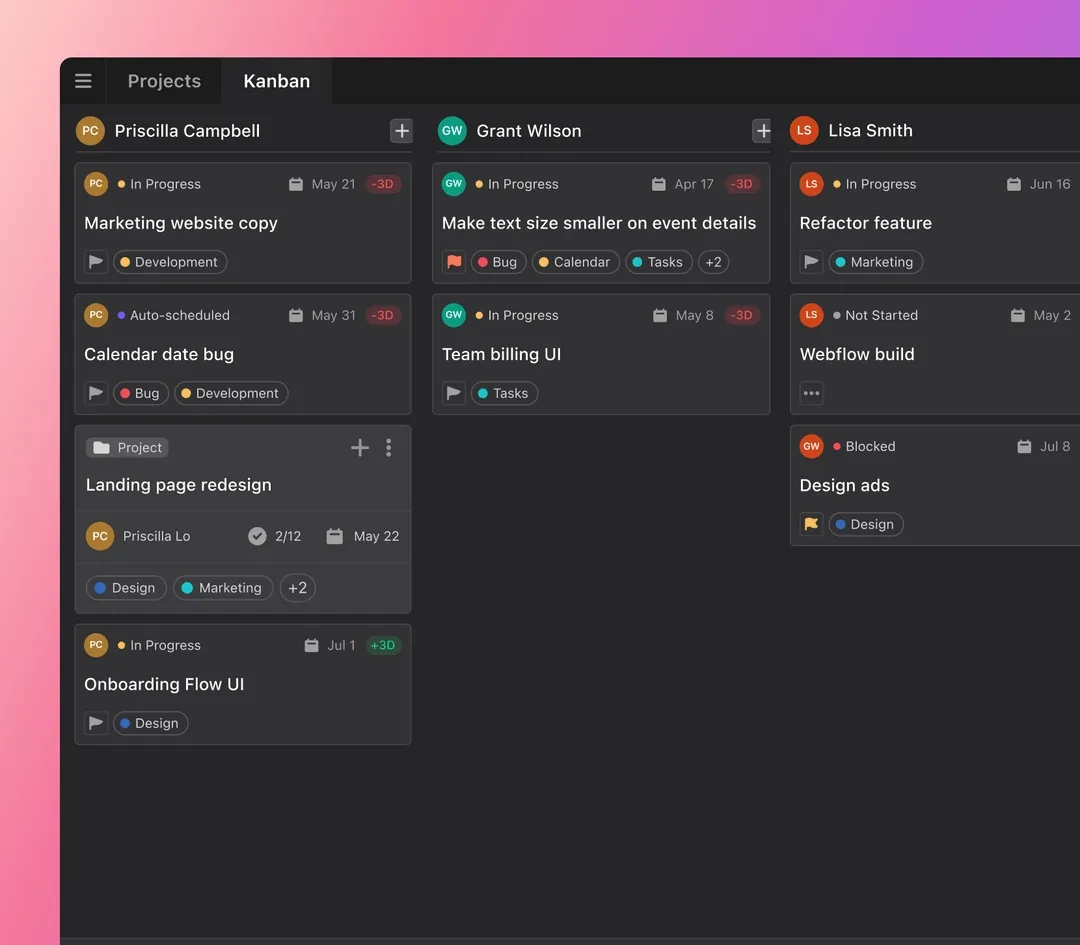 |
4. Tackle burnout head-on
Don't wait until your employees are completely burnt out to address the issue. Recognize the signs of burnout early. Look for:
- Increased cynicism or negativity
- Reduced productivity and concentration
- Emotional exhaustion or irritability
Burnout is often the result of an unrealistic workload, a lack of support, or unsolved conflict. Regularly ask your team for feedback through surveys to help you identify and fix this problem before it takes a toll on your team.
Build a positive, energetic workforce with Motion
Help your team to do their best work by protecting their energy and focus with Motion. Try Motion for free today.

Vicki Chen is a content writer and marketer using proven storytelling methods to create high-quality copy and content for SaaS companies. When she's not writing, she's spending time with Taco, her rescue dog.




